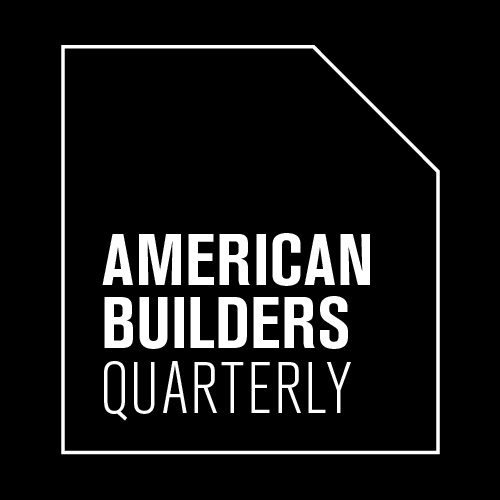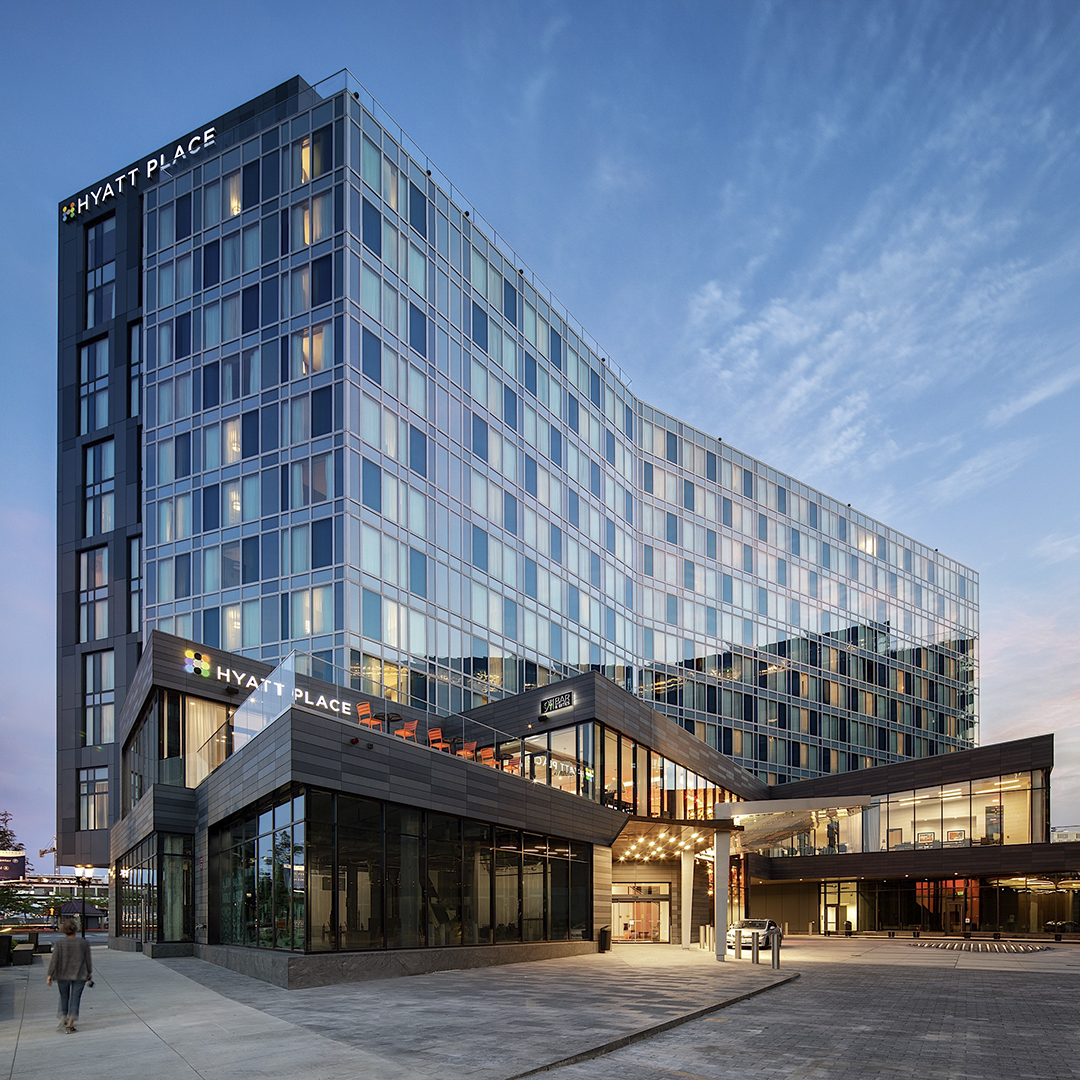|
Getting your Trinity Audio player ready...
|
“I’m of the Rubik’s Cube generation,” says Andy Westfall, director of planning and development at Herschend Family Entertainment. “In other words, I’m a Gen Xer who’s spent a lot of time solving puzzles. I’m drawn to solving problems that always change.”

In keeping with Westfall’s analogy, 2020 was the ultimate Rubik’s Cube, a time when Herschend’s entire industry—and the world at large—was thrust into ever-evolving uncertainty due to the COVID-19 pandemic. As the nation’s largest family-owned themed-entertainment company, Herschend counts Dollywood, Silver Dollar City, Adventure Aquarium, and a string of other theme parks and tourist attractions among its properties, meaning that each destination had to change the way it operates.
Because Herschend’s destinations span six different states, its various properties and attractions reopened on different schedules with different parameters and restrictions. But regardless of location, Westfall and his team had to adopt a unified mindset—one that was more adaptive and in the moment than usual.
“Our creative studio shifted from long-term planning to short-term strategy,” he explains. “Previously, we were working on three, four, five years out. It became a six- to eight-month spread to develop parameters of getting guests into the park safely. How do we ticket them in this new world? How do we create the right amount of distancing to make people feel comfortable about the environment we’re putting them in? It was a lot of base-level number-crunching to understand how each of our properties gets filled, the capacities, and how many people we feel comfortable engaging in an activity.”
One adjustment Westfall remains especially proud of is the presentation of Santa Claus in all of Herschend’s parks. Rather than the usual experience where kids get to sit on Kris Kringle’s lap, this year saw him greeting park attendees and accepting Christmas lists from a cozy, socially distanced cabin. The idea came from creative, but Westfall is quick to give just as much credit to the parks’ small army of operators.
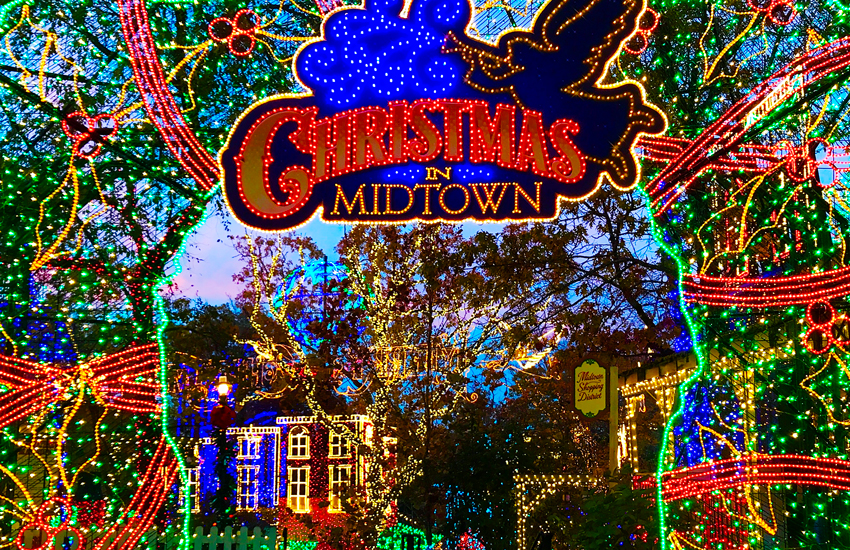
“These folks are on the front line,” Westfall stresses, explaining how park employees have done everything from creating a memory-making Santa experience to wiping down roller coasters, regularly checking temperatures, and ensuring that protocol is followed for social distancing. “They have worked hundreds and thousands of hours so people can still enjoy everything. I’ve got to pat them on the back more so than any planning that’s been done.”
Thanks to everyone’s efforts, Herschend has been able to provide a safe and joyous respite from the troubles of the pandemic. “It’s hard to see the smiles behind the masks, but the laughs still come through,” says Westfall. And once the world returns to normal, he wonders if the company might keep some of their newfound business practices.
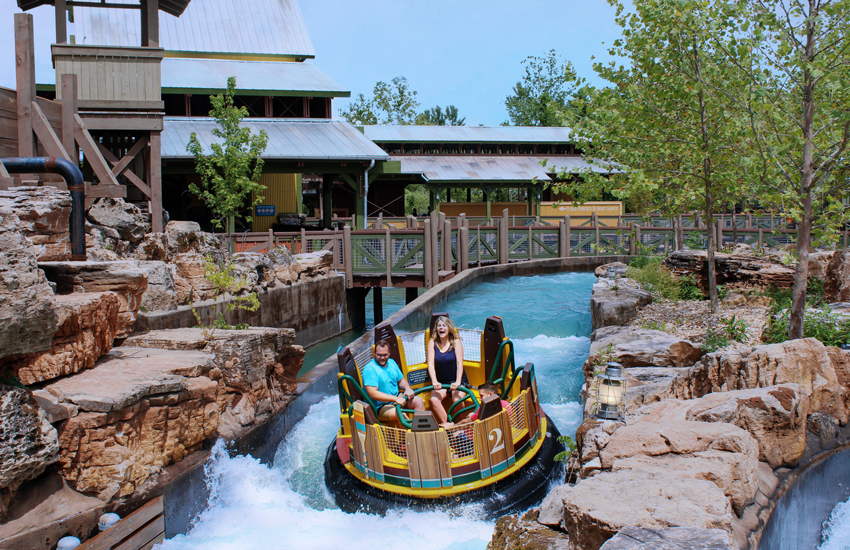
“COVID has given us the chance to hit the pause button and evaluate the system we’re always developing,” he explains. “The numbers are reduced for what we’re allowing into the park, so it allows us to assess how we’re serving the guests. There’s a whole bunch of math in the theme-park world that talks about something called entertainment units. Ultimately, it boils down to how many things you get to do in an hour. When you have a smaller number of people in that park, they have the ability to do more things. They come out happier.”
Westfall clarifies that it’s difficult to say if Herschend will definitely retain any of the changes made during COVID (“Our 10-year plan today looks a lot different than our 10-year plan nine months ago”). But regardless of the outcome, he and his team will tackle the next phase with a mixture of imagination and practicality.
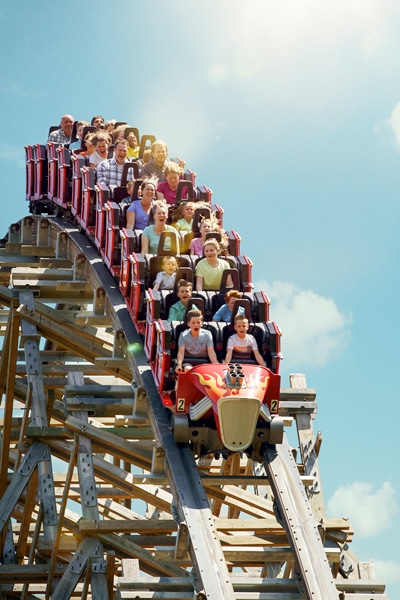
“There’s a triangle that we always try to balance,” he says. “One side of the triangle is the guest expectation. The other side’s the business objectives. The third side is the time and your schedule. A lot of my job is just early alignment of those three sides. What does the owner and property executive want out of this project? What do we think the guest wants out of this? And what are the realities of getting this project done on time and delivering it?”
It all ties back to Westfall’s childhood—the Rubik’s Cube, the Dungeons & Dragons games, the Choose Your Own Adventure books; the idea of balancing creativity and logistics in a constantly changing environment. Westfall feels grateful and lucky that he gets to use his imagination so much on a daily basis.
“For me, projects are all about creating a sense of discovery,” he says. “My job is for somebody with a really short attention span because every day is a different challenge. In that way, I get to be a professional child. As a kid, I used to think, ‘If I’m not having fun, then what am I doing?’”
